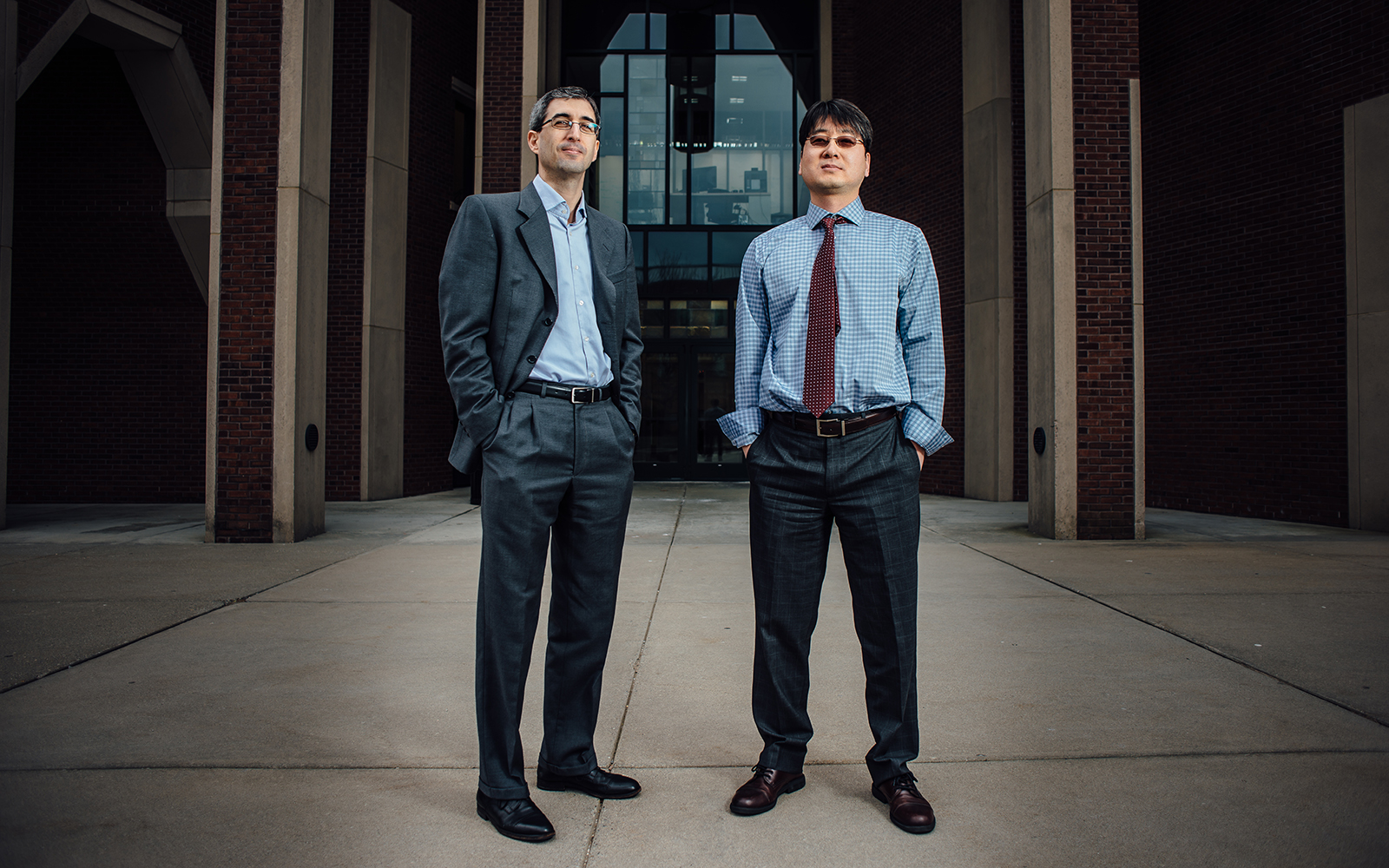UConn Today – Sudden Infant Death Syndrome can strike fear in the heart of a new parent – something Olivia Briggs ’17 (NUR) knows well. When her nephew was a newborn, her sister obsessively bounced in and out of his room to make sure he was still breathing, she recalls. Not long before, a friend of her sister’s lost her baby to SIDS, the cause of 4,000 sleeping-related deaths annually in the United States, according to the American SIDS Institute.
Research
Seven Business Faculty Honored

Professor Reilly Recognized for Remarkable Research; Peers Honored for Teaching Strategies
Management Professor Greg Reilly earned the School of Business’ annual award for Research Excellence, an achievement that is based on five years of academic success. Continue Reading
UConn Joins Hunt for New Materials
Dean’s Annual Report 2016
Transforming Futures
In describing the UConn School of Business at this moment, 76 years into its accomplished history, the word “engaged” captures the essence. Our students, faculty and staff are engaged with each other, with our alumni, with the corporate community and with the University.
The School’s growth has been extraordinary, both in terms of enrollment and creating and maintaining vibrant, effective and relevant academic programs. We are transforming the future—of our students, our state, our industries and our world. There is much to celebrate.
We invite you to read the 2016 Dean’s Annual Report.
Are Good Ideas Contagious?

Professor Grosser: When It Comes to Nurturing Innovation, Colleagues Play a Huge Role
Companies can nurture more creativity and innovation by identifying and strategically connecting their best innovators with other employees, because their talent and mindset will likely inspire co-workers. Continue Reading
Show Us the Numbers!

Comparable Financial Statements Help Acquirers Make Smarter Deals
Financial accounting may play an even more important role than previously recognized when it comes to corporate acquisition decisions, according to a UConn professor. Continue Reading
Consumers On the Move
UConn Researcher Finds ‘Mobile Geo-Targeting’ Can Be a Powerful Tool for Business Growth
With the typical American consumer spending three hours a day on a smartphone, savvy companies are quickly trying to capitalize on new technology that allows them to market their businesses electronically. Continue Reading
Growing New Ventures at UConn
UConn Today – Mostafa Analoui joined UConn as executive director of venture development last October after an extensive national search, and now also serves as head of the UConn Technology Incubation Program. He has previously worked in academia, the corporate world, and investment banking, as well as launching a startup that is still in business today.
Finance Professors Honored for Research

Martinez, Kang Honored for Outstanding Research on Investment Perceptions, Practices
Finance professors Jose Martinez and Namho Kang have both received prestigious recognitions for their separate research endeavors. Continue Reading
Special Economic Zones and the Perpetual Pluralism of Global Trade and Labor Migration
Georgetown Journal of International Law, Vol. 47, No.4 (2016)
